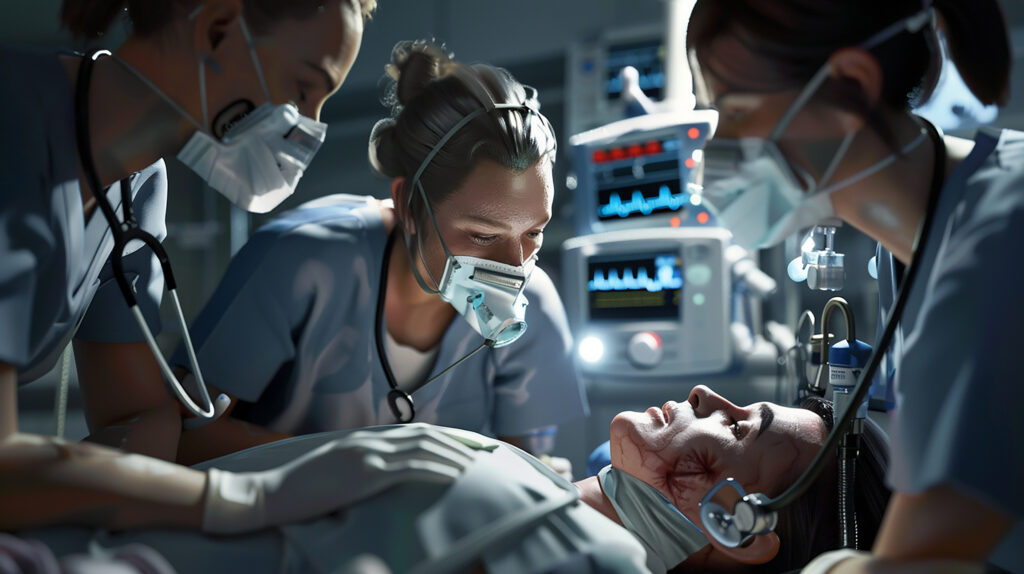In the critical moments after an accident or injury, fast and effective emergency and trauma care can be the difference between life and death. Whether it’s a road accident, a severe fall, or a sudden medical emergency, getting the right treatment quickly is essential for saving lives and preventing further harm.
In this guide, we will dive into the essentials of emergency and trauma care, explaining the importance of accident care, critical care, trauma surgery, and emergency medicine. We’ll also highlight why Lifeline Hospital in Adoor is renowned for providing the best emergency and trauma care in Kerala.
What is Emergency Care?
Emergency care refers to the immediate medical attention provided to individuals in critical situations. This type of care is designed to stabilize patients, manage life-threatening conditions, and prevent deterioration before they can receive specialized treatment. It involves rapid assessment, diagnosis, and intervention.
Understanding Trauma Care
Trauma care is a specialized branch of emergency care focused on treating patients who have suffered serious physical injuries, often from accidents or violent incidents. Trauma care deals with injuries to internal organs, broken bones, and significant wounds that require urgent attention.
Importance of Trauma Surgery
Trauma surgery is often a life-saving procedure that involves repairing or removing damaged tissues and organs. Surgeons must act quickly to prevent further damage and address internal bleeding or other critical issues.
The Role of Critical Care in Emergencies
Critical care, also known as intensive care, is provided to patients who are in life-threatening conditions and require constant monitoring. This care includes patients with severe trauma, infections, or respiratory failure.
Differences Between Critical Care and Trauma Care
While trauma care focuses on treating injuries, critical care is broader and covers all types of life-threatening conditions, including organ failure, severe infections, and post-surgical recovery.
Accident Care: Immediate Response and Importance
Accident care refers to the medical response given at the site of an accident or shortly after. This can include first aid, transportation to the hospital, and initial emergency treatments to stabilize the patient.
Key Elements of Accident Care
Rapid response: Time is of the essence in accident care. Medical teams need to reach the scene quickly to assess the situation.
Initial assessment: Evaluating the patient’s condition is crucial in determining the urgency of treatment.
First aid and stabilization: Basic life-saving measures such as stopping bleeding, ensuring airway clearance, and immobilizing injuries.
The Basics of First Aid in Emergency Situations
First aid is the initial help provided to an injured person before professional medical care is available. It can prevent the condition from worsening and can even save lives.
Why First Aid Training is Essential
Having basic first aid knowledge enables individuals to act swiftly in emergencies. This can be vital in the moments before professional help arrives.
Common First Aid Practices in Accidents
CPR (Cardiopulmonary Resuscitation): Essential in cases of cardiac arrest.
Wound care: Cleaning and bandaging wounds to prevent infection.
Splinting fractures: Stabilizing broken bones to avoid further injury.

Emergency Medicine: The Backbone of Trauma Care
Emergency medicine focuses on the diagnosis and treatment of unforeseen medical conditions. Physicians in this field are trained to handle a variety of urgent situations, from heart attacks to trauma injuries.
How Emergency Medicine Works
When patients arrive at the hospital, emergency medicine specialists assess their condition, prioritize treatments, and ensure that the right resources are applied to stabilize them quickly.
Trauma Surgery: Life-Saving Interventions
When injuries are too severe for non-surgical treatment, trauma surgery becomes necessary. These surgeries are performed by specialists who are trained to handle the most complex and critical situations.
Common Trauma Surgeries
Brain surgery: For head injuries and internal bleeding in the brain.
Orthopedic surgery: To repair broken bones and damaged joints.
Abdominal surgery: To address internal organ damage and bleeding.
When Is Trauma Surgery Necessary?
Trauma surgery is required when injuries involve significant internal damage or the patient is in critical condition. Speed and precision are key in trauma surgery to avoid long-term complications or death.

Lifeline Hospital, Adoor: The Best Emergency and Trauma Care in Kerala
Lifeline Hospital, Adoor, stands out for its state-of-the-art emergency and trauma care services. With a dedicated team of doctors, advanced medical technologies, and a reputation for excellence, it’s the go-to facility for emergency situations in Kerala.
Why Lifeline Hospital Stands Out
24/7 emergency services: Lifeline Hospital provides round-the-clock emergency care for all critical conditions.
Expert trauma surgeons: The hospital has a team of highly qualified trauma surgeons who are experienced in handling severe injuries.
Comprehensive critical care: Lifeline offers advanced critical care services with a dedicated ICU for trauma patients.
Conclusion
In life-threatening situations, receiving timely and appropriate emergency and trauma care can make all the difference. Whether it’s accident care, critical care, or trauma surgery, having a trusted medical team and well-equipped facility like Lifeline Hospital is essential. If you or someone you know is in need of emergency care, don’t hesitate to reach out to Lifeline Hospital, Adoor – the best emergency and trauma care provider in Kerala.
FAQs
What should I do in a medical emergency?
In a medical emergency, stay calm and immediately call emergency services. If trained, provide first aid and ensure the patient’s safety until professionals arrive.
What are the key differences between emergency care and trauma care?
Emergency care handles all kinds of medical emergencies, while trauma care specifically deals with serious physical injuries like fractures, organ damage, and severe wounds.
How important is first aid training for handling emergencies?
First aid training is crucial as it equips individuals with the skills to provide immediate care and potentially save lives before professional help arrives.
Can trauma care to prevent long-term disabilities?
Yes, receiving timely and appropriate trauma care can reduce the risk of long-term disabilities and improve recovery outcomes.
Why is Lifeline Hospital in Adoor considered the best for emergency and trauma care?
Lifeline Hospital stands out due to its 24/7 availability, advanced facilities, expert trauma surgeons, and comprehensive critical care services. It’s widely recognized for providing top-quality emergency care in Kerala.


